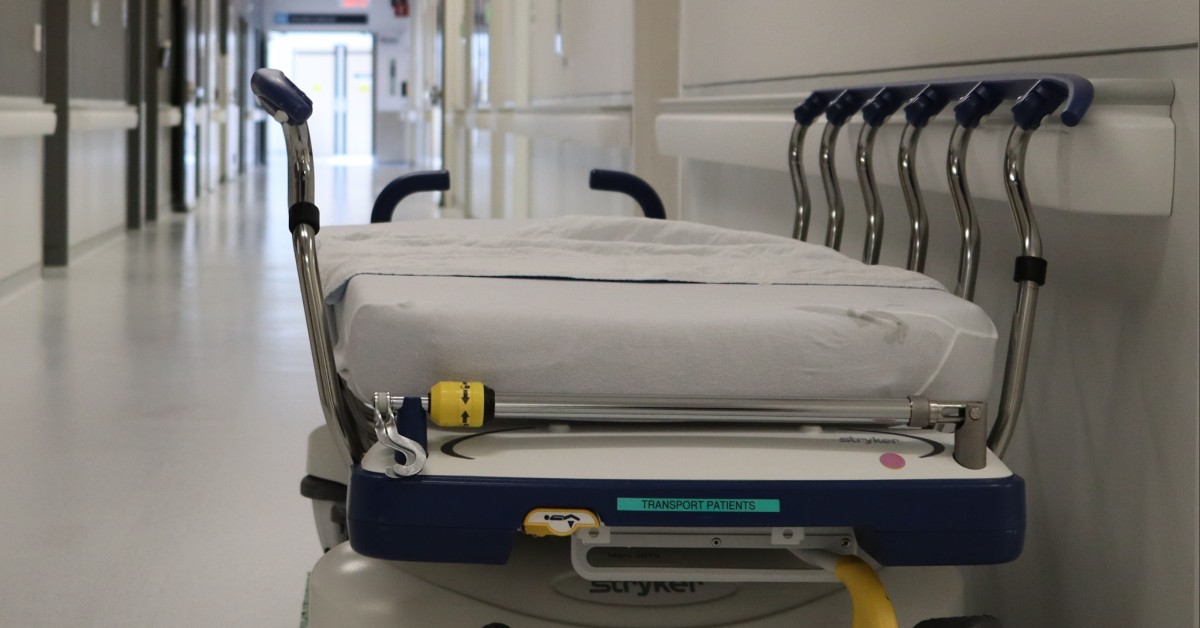
What is an MBA in Healthcare Management?
An MBA with a Healthcare Management concentration can equip you [...]

Most nurses work one-on-one with patients, delivering care and guidance driven by each patient’s needs. Some healthcare issues, however, are better addressed on a larger scale. For example:
Healthcare issues requiring policy prescriptions are the domain of public health. Public health nurses help to implement these policies on a daily basis, administering programs and education to patients within a targeted community. They serve on the front lines of the public health war, helping to keep us all safe even though we will likely never encounter them face-to-face.
In this article on how to become a public health nurse, we’ll cover:
Public health nurses constitute the largest segment of the professional public health workforce in the United States.
According to the American Public Health Association, public health nursing is a specialty practice of registered nursing that aims to prevent diseases and improve public health across whole populations. Though public health nurses treat individual patients, most work in group settings, including:
Public health focuses on the well-being of a community rather than on individuals and families. Accordingly, public health nurses typically engage in such broad-impact activities as providing health education to large groups or providing access to clean water to a neighborhood, town, or region. As health educators, they strive to inform the public on practices and precautions to prevent disease and injury before it occurs.
Public health nurses work in a variety of settings; their roles and responsibilities vary according to their assignments, according to the Centers for Disease Control and Prevention (CDC). Not all public health nurses are involved in every aspect of the profession, but in general, public health nurses:
The first step in becoming a public health nurse is to become a registered nurse (RN). You can qualify for an RN license with either an associate’s degree in nursing (ADN) or a bachelor’s degree in nursing (BSN). Most employers prefer the BSN, and the profession is trending toward requiring the BSN as a minimum requirement for many positions. For the time being at least an ADN is also sufficient.
While most BSN programs are general in focus, a few schools offer the degree with a specialization in public health. They include:
Once you earn your degree, you will need to pass the National Council Licensure Examination for registered nurses (NCLEX-RN exam). Registered nurses are licensed by the states, and requirements vary from one state to the next. However, all fifty states require the NCLEX-RN, so you’ll need to pass no matter where you practice. Most states require nurses to renew their licenses every two years.
While no further academic degree is required to practice public health nursing, some public health nurses continue their training by earning a BSN (if they hold only an ADN) and an Master of Science in Nursing (MSN) with a focus on public health. Consider pursuing this degree at a state university in your home state. You will benefit from the reduced in-state tuition, and the program will prepare you for the specific licensure and certification requirements of your state.
If you cannot find a sufficient local option, consider pursuing the degree online. Online study typically allows for the flexibility to continue working as you study, and to complete the degree on your own timeline. Although some online programs are costly, others are reasonably priced. Well-regarded universities offering online MSN degrees with a concentration in public health include:
Doctoral programs in nursing, such as the DNP—Population Health Nursing program from the University of Washington – Seattle Campus or the DNP—Public Health Nursing at University of Colorado Denver/Anschutz Medical Campus, offer another option. The DNP is designed to train leaders in public health policy and advocacy.
Progress in a public health nursing career is typically measured by the responsibilities one takes on. Many public health nurses move into administrative and supervisory roles as their careers progress. Should you prefer to remain in the field, opportunities to do so should remain available. One of the great things about public health nursing is the diversity of jobs available, along with the high demand for public health nurses that should make it possible to focus on aspects of the job that appeal most to you.
Public health nurses are not extravagantly compensated. On the contrary, the median annual salary for public health nurses is $58,227, which is low for registered nurses (who earn, on average, $71,730 per year, according to the Bureau of Labor Statistics (BLS)). You need a passion for the public-health mission to endure in this job; no one gets into it for the money.
Other important qualities of a successful public health nurse include:
Since many public health nurses engage in a variety of real-world settings, comfort with working in varied environments is also helpful.
The skills and experience gained while training to be or practicing as a public health nurse can be transferred to other healthcare situations. These include:
Most states allow RNs to practice public health nursing without any mandatory certification. One notable exception is the state of California, which requires the California Public Health Nurse Certificate (PHN).
Candidates with five years of public health work experience can apply for the Certified in Public Health (CPH) designation. This certification requires applicants to pass a four-hour, 200-item examination.
If you have a passion for nursing and public health, absolutely. This is a profession that combines both, allowing you to work on the front lines of public health policy implementation and education.
If your goal is to earn as much money as you can as a registered nurse, then the answer is no. This is not a high-paying nursing specialization. If public health is not a passion of yours, you should consider other options. The nursing world offers many, many specializations, one of which should inspire you more.
A final word: if you truly are committed to the mission of public health policy, you might also want to consider a Master of Public Health (MPH). This degree will take you out of the field of nursing and into the field of administration and leadership, so it’s not for everyone. But, if your interests tend toward implementing and changing policy on a large scale, the MPH might do a better job of tracking you toward the career you want. You can learn more about the MPH and the careers it can prepare you for right here at Noodle.com.
(Last Updated on February 26, 2024)
Questions or feedback? Email editor@noodle.com

An MBA with a Healthcare Management concentration can equip you [...]

On average, health services managers earn over $100,00 per year. [...]

All health data analysts sift and sort data to cull [...]

A lot of factors come into play. Think: demand, specialization, [...]

Health care systems require social workers to assist individual patients [...]
Categorized as: Advanced Practice Nursing, Nursing & Healthcare